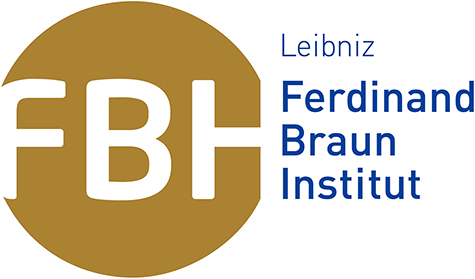Ferdinand-Braun-Institut, Leibniz-Institut fuer Hoechstfrequenztechnik im Forschungsverbund Berlin e.V.
The Forschungsverbund Berlin e.V. (FVB) represents eight research institutes of national interest in the fields of natural sciences, life sciences and environmental sciences in Berlin, which pursue common interests within the framework of a single legal entity while maintaining their scientific autonomy. The institutes are jointly funded by the German federal and state governments and belong to the Leibniz-Association. About 1.900 employees, undergraduate and graduate students as well as visiting scientists work within the research association. The institute directors and other senior scientists are professors at the universities of Berlin/Brandenburg thus ensuring a close connection to teaching and research in higher education. The FVB handles about 50 FP7 and H2020 projects, among them Infrastructures, Cooperation and Marie Curie Projects.
The Ferdinand-Braun-Institut, Leibniz-Institut für Höchstfrequenztechnik (FBH) – as part of FVB explores cutting edge technologies for innovative applications in the fields of microwaves and optoelectronics. As a center of competence for III-V compound semiconductors, the institute is part of a worldwide network and achieves research results advancing the international state-of-the-art. The institute has a staff of 290 employees and a budget of 23 million Euros.
Within FBHs science management department a team specialising in outreach has been active for many years informing about education and training opportunities, trying to attract young people and especially girls to STEM careers. Over the years a strong network has been established not only on regional bot also on national and EU-level.
Apart from Open Days and “normal” presentations at the institute or at educational fairs several special formats for outreach have been developed.
As the percentage of women in STEM is rather low there is a high interest in especially encouraging girls to opt for careers in STEM / PHOTONICS. In Germany a number of promotional programmes have been set up over the years.
As part of that the FBH initiated some years ago round tables to enlarge the network of multipliers, to raise awareness in gender matters and to inform about jobs and training opportunities in optics and microsystems technology. Based on that new special event-formats for girls have been developed (as listed below):
Girls' Day at the FBH
Since 2014, the FBH participates each year in the Girls' Day under the motto "Small but powerful - innovations with microwaves and light" and enjoys the persisting popularity of this event targeted at schoolgirls between grade five and ten.
Starting with a short introduction, all girls get a survey of the research areas of the Ferdinand-Braun-Institut. Afterwards, divided in smaller groups, they become acquainted with various working areas of the institute and gain insight into typical processes and working steps during manufacturing of semiconductor devices.
Girls’ Technology Congress
Girls’ technology congresses are one-day-events addressing girls from 7th to 12th grade.
The first 4 congresses were linked to the nationwide network mst|femNet meets Nano and Optics, funded by the Federal Ministry for Education and Research. The FBH as main organizer was supported by many local and regional protagonists offering practical workshops as well as guided tours in companies, institutes and historical technical sites.
In 2014 and 2015 the congresses (with special focus on photonics) were part of the European GoPhoton! project initiated by the European Centres for Outreach in Photonics (ECOP) and funded through the FP7 programme. With the help of GoPhoton! a “European dimension” was added to the event since some of the workshops were held in English by EU partners from Barcelona, Brussels and Galway.

Katharina Kunze